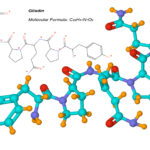Courtesy of Roswell Park Comprehensive Cancer Center
Each year millions of men get a prostate-specific antigen (PSA) test to detect signs of prostate cancer in their blood. The PSA test, created at Roswell Park Comprehensive Cancer Center after PSA was identified in the 1970s, detects elevated levels of a protein in the blood that can indicate the presence of prostate cancer. In the past, only 4 percent of prostate cancers diagnosed were curable, but the PSA test and early detection has brought that number to 80-90 percent.
Now another Roswell Park team is hoping to build on that legacy by developing a urine test for prostate cancer. Adam Sumlin, PhD, MBA, is leading the effort and hopes that the new test will be even more accurate, and encourage men, especially those of color, to get screened earlier. While the PSA test has been incredibly beneficial, it can provide false positive results.
Prostate cancer experts recommend that men get both a PSA blood test and a digital rectal exam (DRE), to examine a gland located near the rectum, which often makes men very uncomfortable. In an effort to identify biomarkers in urine, Dr. Sumlin is working with Eric Kauffman, MD, and Khurshid Guru, MD, in Roswell Park’s Department of Urology. The team is following more than 120 men who are under active surveillance for prostate cancer, whose PSA levels are checked regularly. They are also looking at urine and blood PSA test results to monitor the men’s PSA levels over five years.
In addition to finding a better early detection test for prostate cancer, Dr. Sumlin wants to help men understand their options for addressing the disease earlier. While prostate cancer is often referred to as an old man’s disease, the U.S. Centers for Disease Control and Prevention (CDC) recommends regular prostate screenings for men between the ages of 35 and 65. Each year, about 33,000 men in this age group die from prostate cancer out of the 264,000 who are diagnosed with it. By the time a man reaches the age of 70, surgery for prostate cancer is rarely recommended because it is a very slow-growing type of cancer.
If prostate cancer is found early in younger men there are more treatment options than surgery, such as chemotherapy, radiation, hormone therapy, and immunotherapy. Also, when PSA levels increase in younger men, they’re more likely to take a wait-and-see approach if they’re told treatment could affect their intimate relationships.
Dr. Sumlin is working to develop an educational approach that would inform men of their options and aid in discussions surrounding the financial stress they might feel in making healthcare decisions. He is also working with urologists at the Veteran’s Administration and Buffalo Medical Group to help the community receive consistent information about their options. He wants to organize seminars and work with prostate cancer survivors who will go into the community to educate men, especially men of color, who face a higher risk of developing prostate cancer at a younger age.
To better understand your prostate cancer risk and early detection testing needs, visit https://www.roswellpark.org/prostate-early-detection












